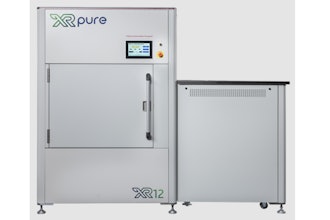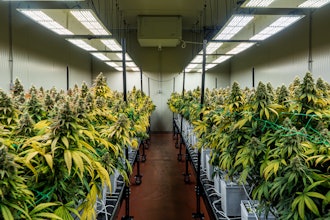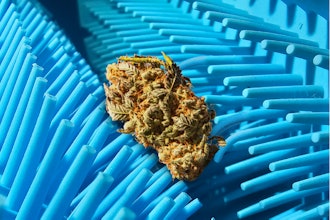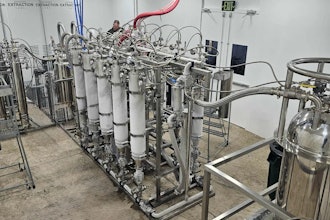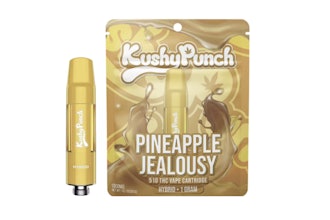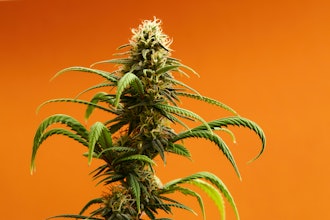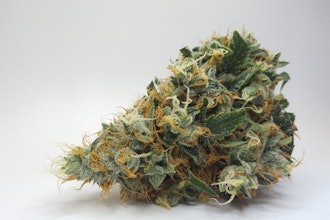
Better Taste, Backed by Terpenes
The days of chasing THC percentages are fading. Today’s buyers are flavor-driven. They care about how a cart tastes, whether it burns smoothly, and if the profile matches what’s on the label. That means terpene preservation has moved to the top of the priority list.
Poor handling or overheating can ruin terpene-rich oils, and consumers notice. High-shear mixing or cheap cartridges that run hot can strip flavor and leave a chemical aftertaste.
Machines like the CFM-1800 let producers set and control heat zones with precision, keeping oils at ideal temps during filling. That keeps the terpenes intact and the flavor profile consistent.
Consistent Hits, From First to Last
No one wants a cart that hits great for a day, then goes weak or starts leaking. Performance matters, especially in premium categories like live resin and rosin, where consumers pay more and expect more.
Consistency starts with filling. Even slight differences in oil volume can cause issues. Overfilled carts flood the atomizer. Underfilled ones feel like a ripoff. There’s also the issue of bubble formation, oil degradation, and leaks if hardware isn’t matched properly with the oil.
Brands can’t afford those quality slips, not if they want to retain customers. That’s why accurate dosing is essential, and why equipment choices affect more than just speed. Precision systems that deliver clean fills, with no dripping or oil waste, help ensure each cart performs exactly as expected.
Cleaner Labels, Fewer Additives
Many buyers are now asking: what’s really in this cart?
There’s rising awareness around thinning agents, synthetic flavors, and post-processing additives. Some consumers avoid distillate altogether because of the perception that it’s been stripped of value and spiked with fillers. Even in distillate-based carts, there’s a demand for minimal ingredients and clear sourcing.
Solventless oils and full-spectrum extracts are gaining traction. But these inputs are harder to work with. They’re stickier, more sensitive to heat, and often harder to fill. That’s where process matters. It’s about making sure the equipment doesn’t damage it along the way.
Machines designed specifically for cannabis, with flow paths made to handle thicker oils and terpene-rich products will keep clean-label products truly clean.
Trust and Transparency
With more brands in the market, consumers are getting better at telling who does the work and who farms it out. They care about who made the oil, how it was extracted, and whether the product is tested and consistent. Trust is built through transparency, not just branding.
When a brand controls its own production, it can speak directly to that process. It can show how the oil is made, how it’s filled, and what checks are in place for quality. Those details matter. A label can say “live resin,” but if the taste isn’t there or the cart clogs halfway through, buyers remember.
Having the right production setup helps close that gap. When one operator can fill, cap, and check hundreds of cartridges per hour, all in a controlled environment, brands don’t need to choose between speed and quality. They can show real ownership over their products, and back it up with performance.
Faster Drops and Shorter Gaps
Launching a great product once isn’t enough. To keep customers loyal, brands need to stay stocked. They need to keep new SKUs flowing and avoid the all-too-common lag between drops. When fans can’t find your product for two weeks, they often don’t come back.
Production bottlenecks are usually to blame, and filling is one of the biggest. If the process is slow, error-prone, or labor-heavy, it’s hard to scale without losing control. On the flip side, fast changeovers and consistent output mean producers can run multiple SKUs without delays or downtime.
That’s where good equipment pays off. The best systems are built for the real-world problems cannabis operators face: thick oils, small batches, rotating strains, and multiple hardware formats. Great systems are optimized to handle these demands without constant cleaning or fiddling. That means less time between batches, and more product getting out the door.
Consumers Want More
From taste to trust, today’s cannabis consumers are raising the bar. They expect premium inputs, smart processes, and no compromises on quality. And they’ll move on fast if a brand doesn’t deliver.
Meeting those expectations starts on the production floor. Whether you're building a flagship product or scaling a proven formula, your tools affect everything: consistency, taste, speed, and ultimately, loyalty.











